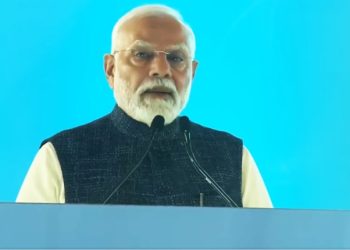New Delhi: The Supreme Court on Monday upheld the National Company Law Appellate Tribunal order, passed in September last year, directing for winding up of Devas Multimedia, which made it a first case of winding up a company on ground of fraud.
A bench of Justices Hemant Gupta and V. Ramasubramanian drew out a comparison between The Companies Act, 1956 and The Companies Act, 2013, to examine fraud as a ground for winding up a company.
It said though Section 433 of the 1956 Act did not include fraud as one of the circumstances in which a company may be wound up, there was still an indirect reference to fraud. The bench noted that Clause (a) of Section 243 of the 1956 Act, enabled the Central government to authorise any person to present a petition for the winding up of a company, not directly on the ground of fraud but actually on the ground that it is just and equitable that the company should be wound up.
The bench observed that the mandate of Section 243 (a) of the Companies Act, 1956 to take recourse, in cases of fraud, to just and equitable ground, was little incongruous. It elaborated that this is due to the reason that under Section 443(2), the court may refuse to make an order of winding up, on just and equitable ground, if some other remedy was available to the persons seeking winding up.
“The main departure of the 2013 Act from the statutory regime of the 1956 Act, is the specific inclusion of fraud, directly as one of the circumstances in which a company could be wound up. Section 271 of the 2013 Act lists out the circumstances in which a company may be wound up,” it said.
“In other words, fraud has now directly become (under the 2013 regime), one of the circumstances in which a company could be wound up, though it also continues to be a ground indirectly, under section 224(2) read with section 213 (as it was under Section 439(1) (f) read with sections 243 and 237(b) of the 1956 Act).”
The bench said: “What is common to both Section 439(1) of the 1956 Act and Section 272(1) of the 2013 Act, is that a petition for winding up may be filed by: (i) the company, (ii) any contributory, (iii) the Registrar, and (iv) any person authorised by the Central government in that behalf.”
In May last year, the Bengaluru bench of the National Company Law Tribunal (NCLT) ordered the winding up of Devas, at the instance of Antrix. It also appointed a provisional liquidator, saying Devas was incorporated with a fraudulent motive to collude with the then officials of Antrix Corporation, to get bandwidth from it by entering into an agreement in 2005. In September last year, the National Company Law Appellate Tribunal upheld the NCLT’s order.
Justice Ramasubramanian, who authored the judgment on behalf of the bench, said: “If the seeds of the commercial relationship between Antrix and Devas were a product of fraud perpetrated by Devas, every part of the plant that grew out of those seeds, such as the agreement, the disputes, arbitral awards etc., are all infected with the poison of fraud. A product of fraud is in conflict with the public policy of any country including India.”
The bench emphasised that the basic notions of morality and justice are always in conflict with fraud and hence, the motive behind the action brought by the victim of fraud can never stand as an impediment. Dismissing Devas’ appeal against its winding up, the bench said: “We find all the grounds of attack to the concurrent orders of the NCLT and NCLAT to be unsustainable.”
(IANS)
















